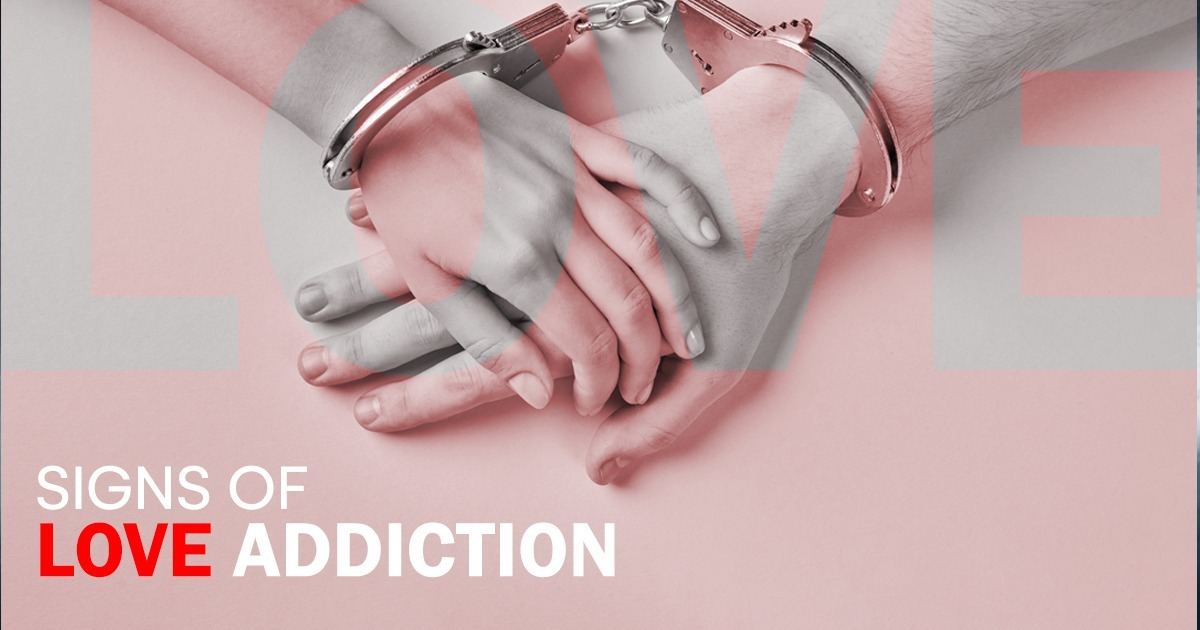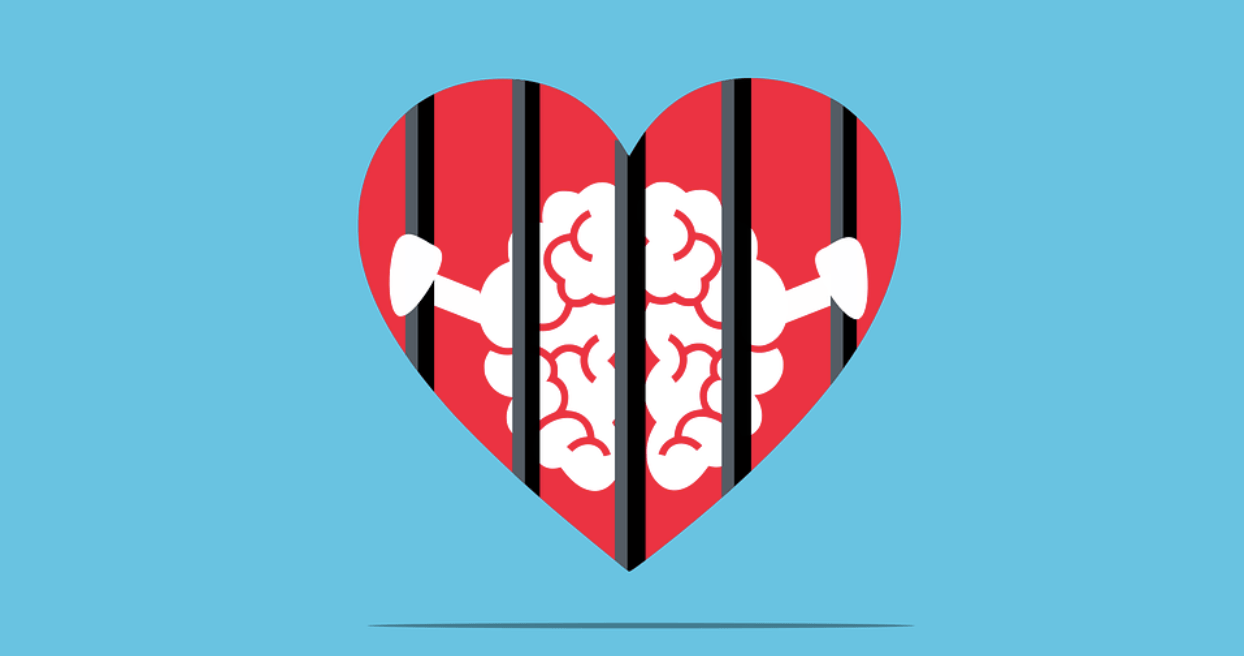
The signs of love addiction can be hard to spot at first. If you’re someone with love addiction, you may initially just see yourself as someone who loves love. While that’s not always a problem pathological love can lead to negative consequences and destructive relationships for some people.
There are similarities between love addiction and other types of addiction, including substances like drugs and alcohol.
Disorders That Occur Along with Love Addiction
Love obsession tends to be a co-occurring condition. When you have a co-occurring disorder, you have symptoms of two or more mental health conditions. For example, you might feel that you show signs of being addicted to love in addition to depression or anxiety. Substance abuse is also a relatively common co-occurring disorder with pathological love.
We should point out that this condition is controversial. Some experts feel that everyone has an element of “addiction” when they love someone. Romantic relationships can and often do have periods where you might feel emotional distress. However, a true compulsion to love goes well beyond what we see as usual in a relationship.
For example, if you’re in a relationship where you’ll give up everything else for that person, it could be a problem. The most significant complication of experiencing this type of compulsive romantic behavior is that you may find yourself in an abusive or toxic relationship.
What is Pathological Love?
Love addiction or pathological love isn’t as medically well-defined as some other types of addiction. When someone is experiencing disruptive or harmful symptoms or consequences because of their romantic relationships, their mental health care provider has to distinguish these from other conditions. For example, in borderline and dependent personality disorders, the symptoms can overlap with pathological love.
Suppose you’re someone with an addiction to love. In that case, you can become fixated on the person you’re interested in at any given time and develop emotional dependencies or a lack of control. You might behave compulsively toward or about that person. You can then act on unhealthy behaviors because of your fixation.
What Type of Disorder Is Pathological Love?
There’s not a current agreement on what type of disorder love addiction really is. For example, pathological love can be considered an impulse-control disorder. With an impulse-control disorder, you are always seeking new experiences and behaving impulsively to get them.
Some researchers believe pathological love is more in line with a mood disorder. For example, you have feelings similar to mania when you’re in the early stages of love or beginning a new relationship. Then, as the relationship progresses, you might experience symptoms of depression.
A third possibility is that being addicted to love could be part of the obsessive-compulsive spectrum. You may experience intrusive, repetitive thoughts just as someone with OCD would, but they’re about your romantic partner or finding love. Of course, as the name implies, having a compulsion to find love can be most like a behavioral addiction too, such as gambling; you don’t have to take a substance, but the characteristics are similar.
Early on in a relationship, you might have intense pleasure and euphoria. Then, over time, those experiences might become dull. You might need more of these love experiences to feel anything similar to a dependence on drugs and alcohol.

What is Sex Addiction?
Sometimes, we talk about sex addiction along with love addiction, it’s not currently in the fifth edition of the Diagnostic and Statistical Manual of Mental Disorders (DSM-5). Despite not being included in that, it’s still diagnosable.
This offshoot occurs when someone seeks out multiple sexual partners to the extent that it interferes with their daily life, activities, and functionality. If you have a sex compulsion, you might not be able to control your behavior, despite severe consequences. Your sexual relationships are your primary focus, and your sexual behavior can become more extreme over time. Sexual addiction can occur along with love addiction, but it doesn’t have to.
Characteristics of Sex and Love Addiction
- Always looking for your soulmate
- Constantly searching for an intimate relationship
- Thinking the intensity of sex or the newness of a relationship is the same as love or real intimacy
- A chronic pattern of seduction, sex, or manipulation to get the interest of potential romantic partners
- Having an intense fear of abandonment
- Breaking promises to yourself about not returning to harmful relationships
- Choosing partners that require a lot of attention or you to fill a caretaker role
- Always needing to be in love
- Being happiest during the so-called honeymoon phase of a relationship
- Obsessing over the idea of romance or romantic interests
- Putting romantic partners on a pedestal
- The inability to be alone
- Requiring emotional comfort from a partner and extreme dependency
- Having cravings to be with your partner
- Experiencing euphoria or emotional highs when you’re with a partner
When you begin a new romantic relationship, it’s normal to feel excited about being with the person, and you may miss them when they’re away. You may obsess over your partner to the point that it causes harm to your relationship or your well-being. You develop dysfunctional patterns. For example, you may seek out the affection of someone who isn’t responsive to you emotionally. You could also find yourself more likely to be in abusive relationships.
Why Do People Have Love Obsessions?
As is the case with other mental health disorders, including substance use disorder, the underlying factors of love addiction are probably complex. Again, we all need and desire to feel love, but what is it about some people that makes this problematic for them? Trauma, genetics, family history, and environment all probably factor in.
Someone with an obsession to finding love or keeping it may also stem from low self-esteem. For example, if you have low self-esteem, you may seek out your sense of self-worth from romantic partners. You could also deal with the signs of love addiction because you have abandonment fears from your childhood.
If you feel like you have an emotional void, you could use romantic partnerships to fill that. You may think that being in love brings value and excitement to your life. Unfortunately, that puts a lot of pressure on your partner. You may not have boundaries, and you’re more likely to find yourself in a codependent relationship.
Love and Substance Abuse
As we talked about above, love addiction can and often does occur with other mental health disorders. You may be searching for love in unhealthy places. You might also seek the highs that love can bring, making you more likely to find similar experiences through substance use.
Additionally, if you have a relationship that falls apart or consistently in unhealthy relationships, you could cope with the negative feelings with drugs or alcohol. Over time, you may experience a void and a sense of shame. There are many elements of being addicted to love that you can’t fix on your own, but treatments like cognitive-behavioral therapy can be beneficial.
If you or a loved one struggles with love or sex addiction along with a substance use disorder, we encourage you to reach out to the Anchored Tides Recovery team at 866-600-7709 to learn about our treatment options. We approach treatment holistically to help put you on the best path to recovery, a fulfilling life, and healthy relationships.



























